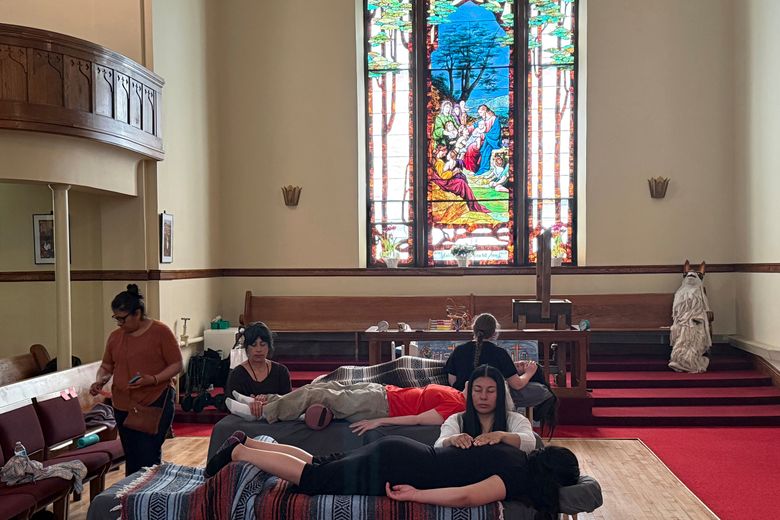Altar Acupuncture: Minneapolis Church Offers Holistic Wellness Through Migrant Ministry
In an inspiring blend of faith and holistic health, a Minneapolis church has introduced acupuncture sessions into its migrant ministry program, aiming to support the physical and emotional well-being of immigrant communities who often face limited access to healthcare. The initiative, dubbed “altar acupuncture,” is being welcomed as a unique and compassionate approach to healing both body and soul.
The program, offered at Church of the Incarnation, has transformed the sanctuary into a space where spiritual and physical restoration come together. Migrants gather not only for prayer and community but now also for acupuncture treatments administered by licensed practitioners volunteering their time.
These wellness sessions are designed to address the physical stress, anxiety, trauma, and chronic pain that many migrants endure, often as a result of long journeys, displacement, and uncertain legal status. According to organizers, the response has been overwhelmingly positive, with participants reporting improved sleep, reduced anxiety, and a renewed sense of peace.
“Our faith calls us to serve not just the spiritual needs, but the whole person,” said one church leader. “By offering acupuncture within a sacred space, we’re making wellness accessible and rooted in dignity and compassion.”
The sessions are held in a quiet, meditative environment, with candles, calming music, and prayer offered alongside the treatments. While some may find the combination of acupuncture and religious practice unconventional, church leaders and health providers say the integration of the two has proven deeply meaningful to participants.
The initiative is part of a broader movement across the U.S. where churches are reimagining ministry to include mental health services, trauma recovery, and alternative healing practices—particularly for underserved populations. Migrants often face language barriers, lack of insurance, and fear of accessing traditional medical systems. Programs like altar acupuncture fill a critical gap by bringing care to where communities already feel safe and welcomed.
Health professionals involved in the effort emphasize that acupuncture can serve as a complementary therapy that supports resilience and recovery, especially in individuals dealing with post-migration stress and emotional wounds.
Beyond the treatment itself, the program has helped foster deeper relationships within the church community. Volunteers, practitioners, and participants share stories and build trust—turning the wellness sessions into a cornerstone of mutual support and healing.
With continued success and growing demand, Church of the Incarnation hopes to expand its offerings, potentially adding other integrative therapies such as massage, mental health counseling, and nutritional education.
As faith communities nationwide look for new ways to engage and uplift marginalized groups, Minneapolis’ altar acupuncture initiative stands as a model of innovation—proving that healing doesn’t always have to be clinical, and care can come in many sacred forms.
Source : Swifteradio.com


